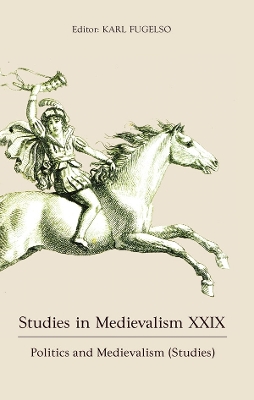To attract followers many professional politicians, as well as other political actors, ground their biases in (supposedly) medieval beliefs, align themselves with medieval heroes, or condemn their enemies as medieval barbarians. The essays in the first part of this volume directly examine some of the many forms such medievalism can take, including the invocation of "blood libels" in American politics; Vladimir Putin's self-comparisons to "Saint Equal-of-the-Apostles Prince Vladimir"; alt-right references to medieval Christian battles with Moslems; nativist Brexit allusions to the Middle Ages; and, in the 2019 film The Kid Who Would be King, director Joe Cornish's call for Arthurian leadership through Brexit. These essays thus inform, even as they are tested by, the subsequent papers, which touch on politics in the course of discussing the director Guy Ritchie's erasure of Wales in the 2017 film King Arthur: Legend of the Sword; medievalist alt-right attempts to turn one disenfranchised group against another; Jean-Paul Laurens's 1880 condemnation of Napoleon III via a portrait of Honorius; Henry Wadsworth Longfellow's extraordinarily wide range of medievalisms; the archaeology of Julian of Norwich's anchorite cell; the influence of Julian on pity in J.K. Rowling's Harry Potter book series; the origins of introductory maps for medievalist narratives; self-reflexive medievalism in a television episode of Doctor Who; and sonic medievalism in fantasy video games.
- ISBN10 1843845563
- ISBN13 9781843845560
- Publish Date 20 March 2020
- Publish Status Active
- Publish Country GB
- Publisher Boydell & Brewer Ltd
- Imprint D.S. Brewer
- Format Hardcover
- Pages 261
- Language English
